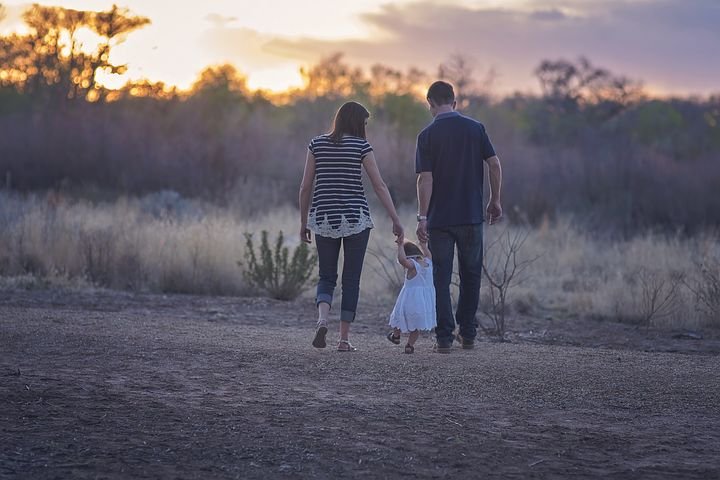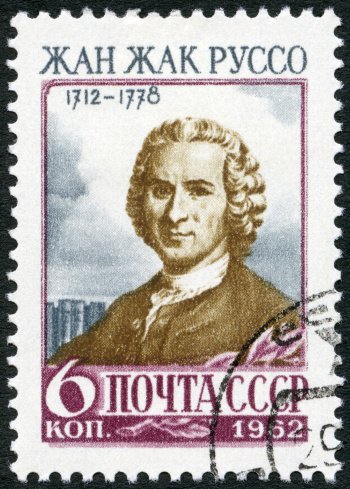THE PHILOSOPHICAL IDEAS OF JEAN- JACQUES ROUSSEAU (1712- 1778)
The 18th century was called the age of enlightenment. It was given this name because during thus period, people began to value the ideas and opinions of individuals on the affairs of the society. Before this time, philosophers were not interested in ideas which concerned persons. They were interested in what concerned the state or the society. For example, Plato as we saw in one of my post, was interested in educating the leader for the ideal state. And so many others.
But the during the age of enlightenment, people developed interest in individuals as human beings, not just as members of the society. This interest in the human person was further developed and led to philosophers showing interest in the period of childhood as that which should be studied. It was believed that a happy fulfilled child would more likely be a happy fulfilled adult than a child who was unhappy. This Was how the philosophy of child education developed. In this post we shall study about one of the philosopher by name. Jean - Jacques Rousseau, ( 1712 - 1778).
JEAN - JACQUES ROUSSEAU (1712 - 1778).
HIS PHILOSOPHY; Although a swiss by birth, he lived and made his greater contributions to the French society. The main point of Rousseau's philosophy is this: "Man is born free, society corrupts him". In other words, a new child is born pure and innocent and will grow up to be pure and innocent if we do not allow him to be badly influenced by society. This state of natural purity is what Rousseau calls the natural state of the child.
 [source] (https://pixabay.com/photos/family-newborn-baby-child-infant-2610205/)
[source] (https://pixabay.com/photos/family-newborn-baby-child-infant-2610205/)
From this basic philosophy which Rousseau conceived because his own society was corrupt, he developed a philosophy of education. He called this " education according to nature". This is education based on a child's natural pattern of development, free from the evil influence of society. He discusses this process of education in his book titled Emile. Rousseau's learner is taken away from society where he cannot be corrupted by evil influence.
 [source] (https://pixabay.com/photos/family-parents-mother-father-2485714/)
[source] (https://pixabay.com/photos/family-parents-mother-father-2485714/)
When he is of age to learn, he is taught the things that would be useful to himself. The child is kept away until he is matured enough to make up his mind about what is right and what is wrong. If he is then brought into the society, he can learn to live in the society without being corrupted. Jean - Jaccques Rousseau's philosophy supports the saying that evil company corrupts good manners.
Rousseau's Practice of Education
Rousseau's practice of education according to nature is based on his philosophy of education. He believed that a father was the child's best teacher, and the mother the best nurse. He developed a programme of education which he divided into four stages of development for the child. He then recommended the educational processes which he believed would be ideal for each of these periods. The stages are as follows:
Infancy: This is the period between birth and five years. The child can only imitate what he sees. During this period, he cannot reason. Therefore, parents should ensure that children only have good examples of behaviour and speech to copy.
Childhood: This is the period between five and twelve years. Rousseau calls the child at this stage of development "a noble savage." This means that the child is not yet capable of reasoning and will only do what brings him favourable reward and avoid what brings him punishment. Since he considers that the child is not yet capable of learning, he would not recommend school work yet.
Pre - adolescence or Boyhood: This is the period between twelve and fifteen years. Rousseau now recommends learning of subjects like geography and science, because they would make the child understand the world around him. He also recommends that children should be taught Manual crafts because he may need them in future emergency situations.
Adolescence : This is the period between fifteen and twenty - five years. He considers this the period of real education. The child should now learn the history of his people, the religion of his people and elements of social relations. He should travel and see the world before settling down to marriage as an adult.
SUMMARY.
Rousseau believed that the society of his days was corrupt. He therefore said that education should shield a learner from the evil influence of the society.
Rousseau's educational practice advocated that the child should be taught according to the stages of his natural development.
Reference:
Bamisaiye, Remi, "some world - views on education" in Ogunsanya, M. (ed. ) Foundation courses in education, Ibadan: Vantage Publishers, 1987.
 [source] (
[source] (
Very interesting to read. I have read so many education thoughts of different philosophers and psychologist like Socrates, Plato, Freud and they are all in support of the well-being and growth of a child and how he is to be taught and raised well without having to be influenced negatively by the society. Thank you for sharing.
Thank you very much for coming around I really appreciate it. Am super encourage for this. Thank you.
Hello @ladygospel, Your publication has been voted by Edu-venezuela. Your post will carry over to other curation projects for more voting support. Keep up the good work!
Thank you very for this am super encourage. I appreciate your vote thank you.